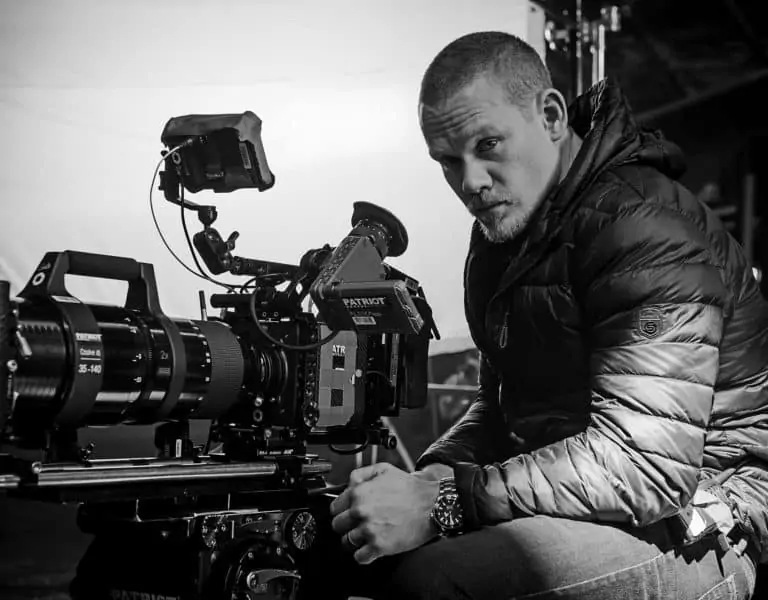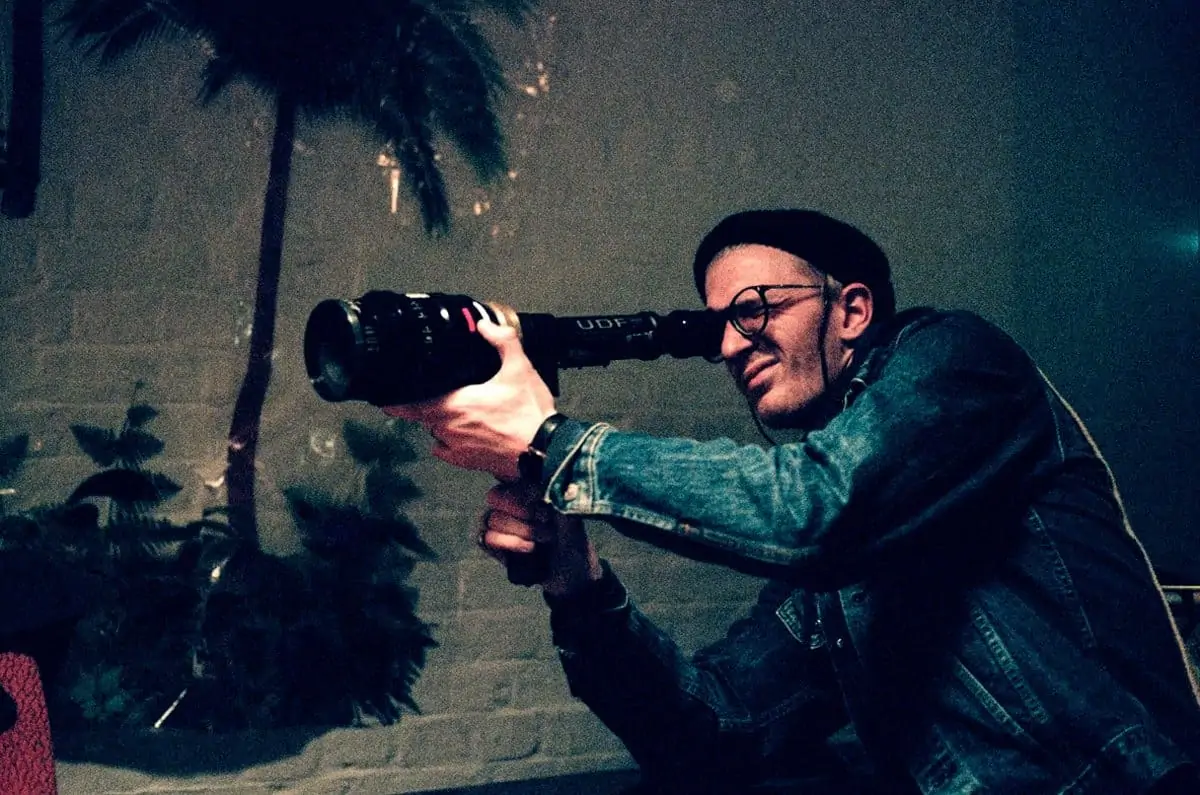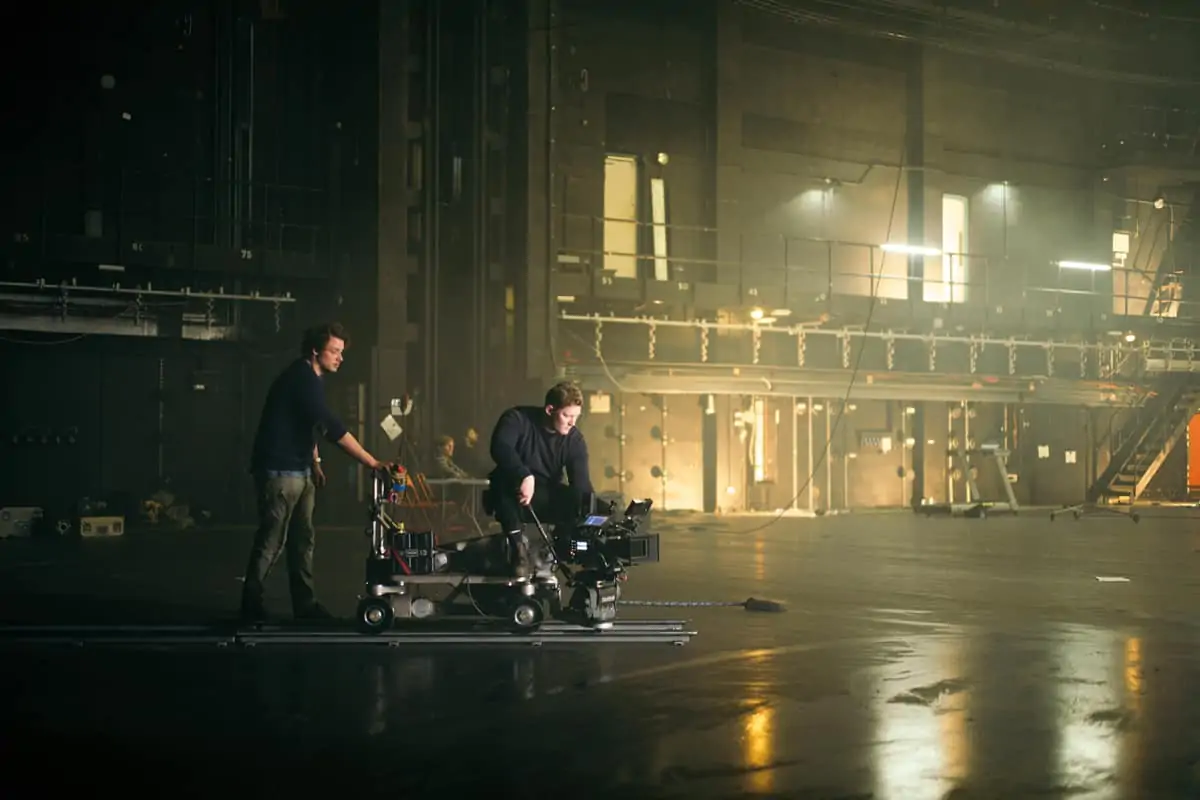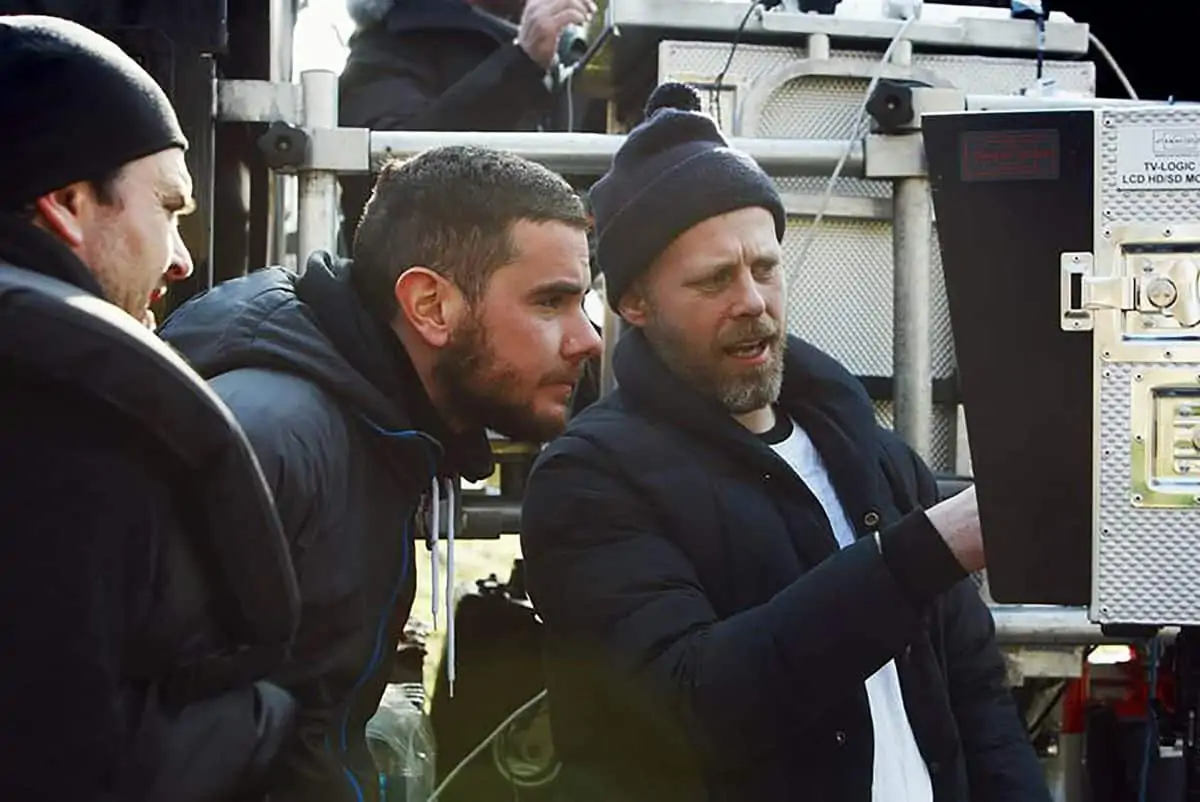Tripping The Light Fantastic
Meet The New Wave / Esther Vardy
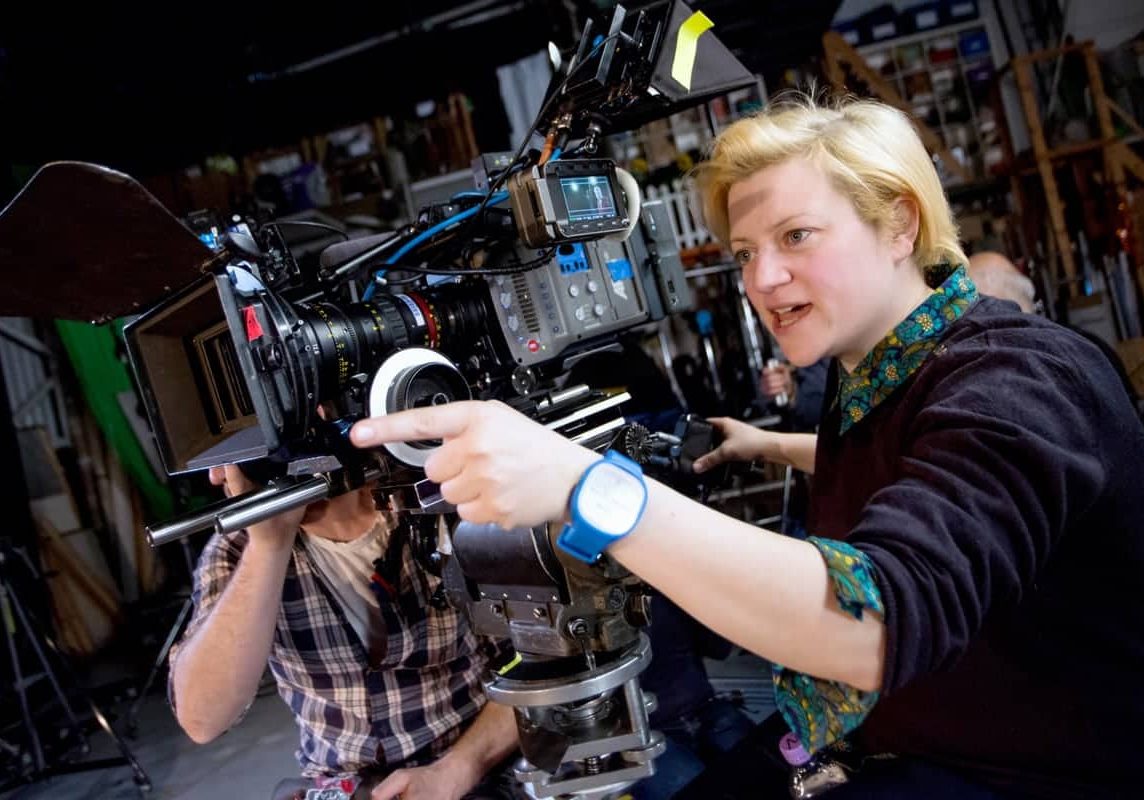
Tripping The Light Fantastic
Meet The New Wave / Esther Vardy
Filmography (so far): TV drama: CBBC Katy (2017, dir. John McKay); Lillian Bilocca (2018, dirs. Maxine Peake/Vanessa Stockley). Shorts: Shattered and Time Away (both 2017, dir. Maxine Peake). Camera operator/dailies on TV dramas including Cold Feet.
When did you discover you wanted to be a cinematographer?
I did a Chemistry degree because I found science, the world behind life, fascinating. I now see how my love for cinematography blends into my passion for science, life and people. I didn’t realise it straightaway, but when I did, it was like the stars had aligned. Looking back, I was the kid with a home camcorder someone didn’t want. I filmed everything, making my friends act out scenes. I loved the imaginary world that films brought. I would daydream in images to music constantly, pure escapism. The power of storytelling combined with visuals to create feeling was compelling to me. Anything that can evoke compassion, empathy and educate is important.
Where did you train?
On-set. From runner, trainee, loader to focus puller… I observed DPs and operators. Then I set-up my own shoots to kickstart it, and get my first showreel. I just worked and worked at it.
What are your favourite films?
Tree Of Life (2011, dir. Terrence Malick, DP Emmanuel Lubezki AMC ASC) – for its beauty in the details, natural light, freedom of delicate, natural observations of life.
Trainspotting (1996, dir. Danny Boyle, DP Brian Tufano BSC) – I was bowled over when I saw this film. It was a rejuvenating jolt of energy – bold, quirky, with a distinctive style that filtered into culture, plus the music, all creating a non-stop ride.
Se7en (1995, dir. David Fincher, DP Darius Khondji AFC ASC) – it has everything going for it – design, story, characters and the lighting. I love Darius Khondji’s unique visual tone, the dark cinematography contrasted with glowing warm light.
Blade Runner (1982, dir. Ridley Scott, DP Jordan Cronenweth ASC) – I’m a massive sci-fi fan. I love films that go beyond what we know, exploring our world, creative scientific theories, possible futures. This is a feast for the eyes.
What’s the best advice you were ever given, and from whom?
A Henry Ford quote: “When everything seems to be going against you, remember that the airplane takes off against the wind, not with it.”
Who are your DP/industry heroes?
Billy Bitzer – imagine being part of the invention of some of the foundations of cinematography. A key pioneer of an era. Creating your own rules with new styles and techniques. Expanding ideas, looks and technology.
Emmanuel Lubezki AMC ASC – I love his consistently beautiful and evocative work.
Roger Deakins CBE BSC ASC – has consistent unique bodies of work too. He epitomises key pioneers. A true master of camera movement and lighting.
Sir Ridley Scott – what a career! I particularly adore Alien – an example of love and dedication on a lower budget. H.R. Giger’s production design is special, intricate, detailed, inventive. Ridley is also a champion of strong female leads.
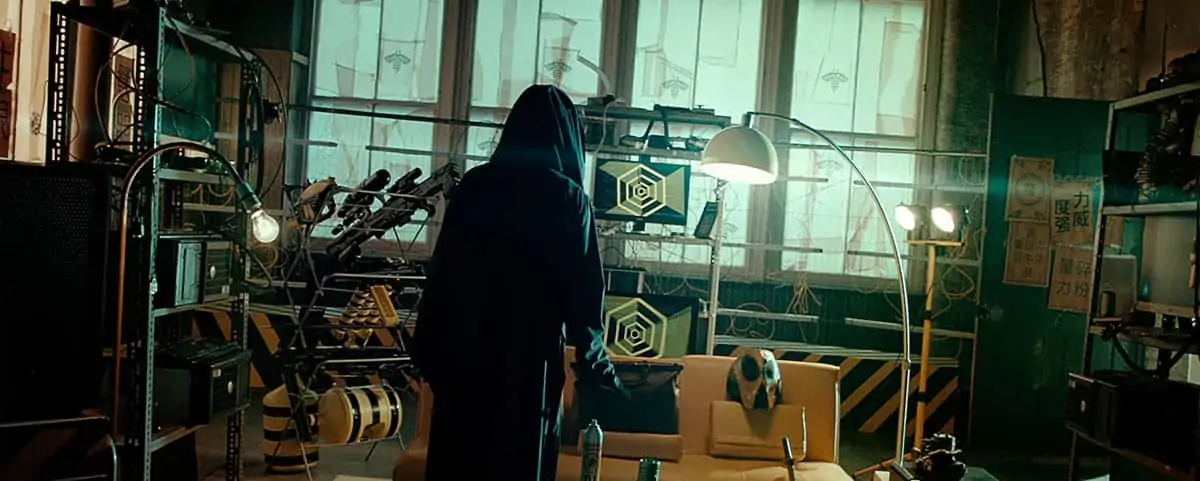
What’s your proudest moment?
Hearing I had achieved First Class Honours in my BSc Chemistry degree. School didn’t suit my personality initially as a kid. Then I decided to pay attention.
What’s the worst knock-back/rejection you ever had?
Everyone, at any stage, will have knock-backs. They make me more determined. I turn them into something positive, and go do something I’ve not tried before.
What have been your best/worst moments on-set?
One moment was both, during my first short. Zero budget, and I was operator, DP, gaffer, spark all-in-one. We suddenly had to do a scene at an unplanned location, the upstairs of a pub. I just had to make it work. The director told me after the shoot, that the producer had said, “this is someone to watch”. She thought I had lots of experience! That felt like a mini-triumph – when you’ve thrown yourself in at the deep end, and it pays off.
What was the biggest challenge on your latest production?
Working with a brilliant 11-year-old girl, who was in every scene. With children, time is constrained to five hours on-camera each day. So when she stepped on-set we needed to work fast. The budget was particularly tight, which meant: A) thinking outside the usual drama box, and sacrificing a certain piece of kit for something else, and B) budget means you can’t expand the schedule to account for restrictive filming hours. Time was against us. We could only do so much with a double, and often bunched that at the end of the day so the girl could wrap sooner, which meant revisiting a scene, jumping back-and-forth in the timeline to make it work.
Tell us your most hilarious faux pas?
As a camera trainee, I handed a cup of tea to the DP who dramatically spat it out for all crew to stop in their tracks. I was mortified. It turned out the SAs had been using the crew kettle to repeatedly empty-out and reheat their hot water bottles.
"I would daydream in images to music constantly, pure escapism. The power of storytelling combined with visuals to create feeling was compelling to me. Anything that can evoke compassion, empathy and educate is important."
- Esther Vardy
Away from work, what are your greatest passions?
Science, space, the universe. The great outdoors, exploring and travel. Meeting people and hearing their stories. Music and vinyl.
What one piece of kit could you not live without?
Pentafinder.
What’s the weirdest thing you’ve ever shot?
Focus-pulling on Sally Phillips as she gives Mark Addy a blowjob for a film. Shot from behind I might add. During the seriousness of running a measuring tape to her head, Sally and I locked eyes, smiling, whilst simultaneously both realising the hugely weird, peculiarity of it all.
Tell us your hidden talent/party trick?
Surprise dance-off, with unwitting strangers!
In the entire history of filmmaking, which film would you love to have shot?
Blade Runner.
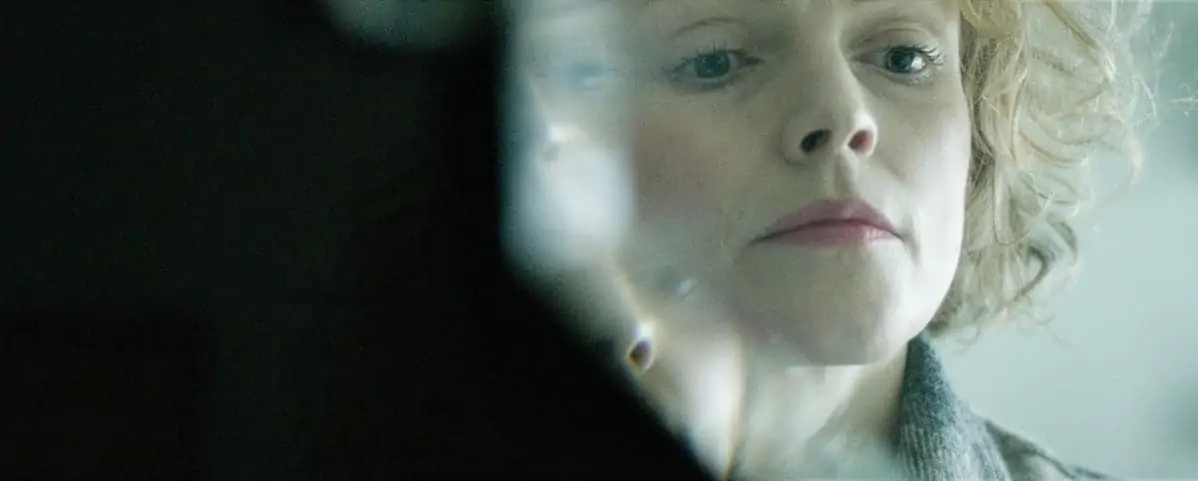
What are your current top albums?
Hans Zimmer, Kate Bush, Wolf Alice, Florence And The Machine.
Can you tell us your greatest extravagance?
I wish. Looking forward to it.
What are the best things about being a DP?
The places you get to go and see. Every day can be different. The variety of people you meet. Projects highlighting important issues. Not many get to stand on a mountain looking out across epic plains in Arizona, filming the Hopi Tribe, hearing their stories… and call it work!
Give us three adjectives that best describe you and your approach to cinematography?
Adaptive. Diverse. Adventurous.
If you weren’t a DP, what job would you be doing now?
Astronaut.
What are your aspirations for the future?
To collaborate with more directors. To work on projects supporting important untold stories, with the capacity for beautiful cinematography. To have fun.

